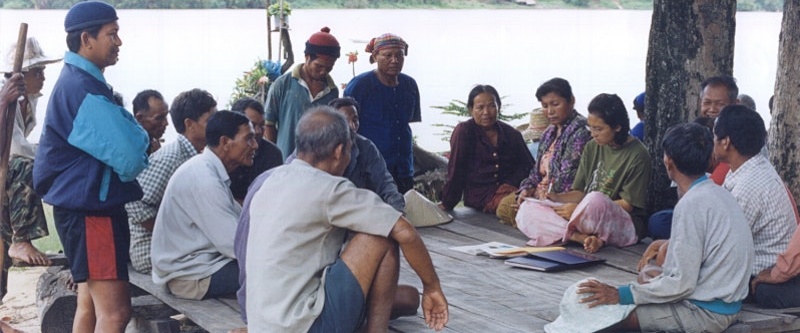
Thai Baan webinar
This event has now finished.
Event details
Thai Baan (‘villager’ in Thai) research emerged 20 years ago as a counter-hegemonic research approach, led by villagers mobilising against state-led development projects, beginning with the hugely controversial Pak Mun hydropower project. Thai Baan developed in order to open up space for villagers to assert their identity, make their knowledge legible, and represent local meanings of environment, livelihoods and development. Thai Baan supported villagers who encountered unequal power relations, challenging the legitimacy of state development that was framed as being grounded in scientific knowledge. Over the last 20 years a wider network of villagers in different parts of Thailand, as well as in Myanmar and Cambodia, have become involved in conducting Thai Baan research.
This webinar will present the history and principles of Thai Baan, and discuss the process of conducting Thai Baan research. The panel will also introduce two case studies that have applied Thai Baan research approaches. We will conclude with some critical reflections on the strengths and limitations of Thai Baan approaches. These presentations will draw on research supported by the Thai Research Fund.
The event is co-hosted by the Research Champions and the Interdisciplinary Global Development Centre (IGDC) – as a contribution to wider discussions about decolonising research, and supporting research that delivers influence and impact.
Attendance at this event is limited to those within the University of York. Please register for this event using your University of York email address.
Panel:
- Chayan Vaddhanaputi - Director of the Regional Centre for Sustainable Development, Chiang Mai University
- Chainarong Sretthachau – Department of Sociology & Anthropology, Mahasarakham University
- Malee Sitthikriangkrai - Centre for Ethnic Studies and Development, Chiang Mai University
- Patcharin Lapanun - Department of Sociology and Anthropology, Khon Kaen University
- Surichai Wun’Geo - Centre for Peace and Conflict Studies, Chulalongkorn University
Chair:
- Richard Friend (Research Champion for Risk, Evidence and Decision-making) chairing the discussion.
Venue details
Wheelchair accessible
